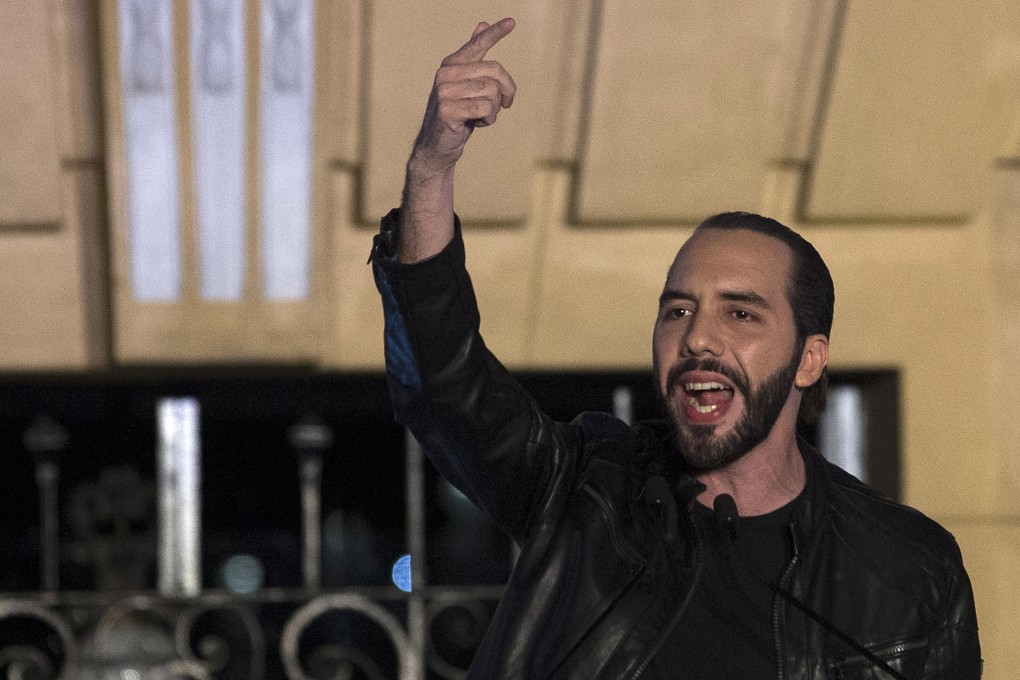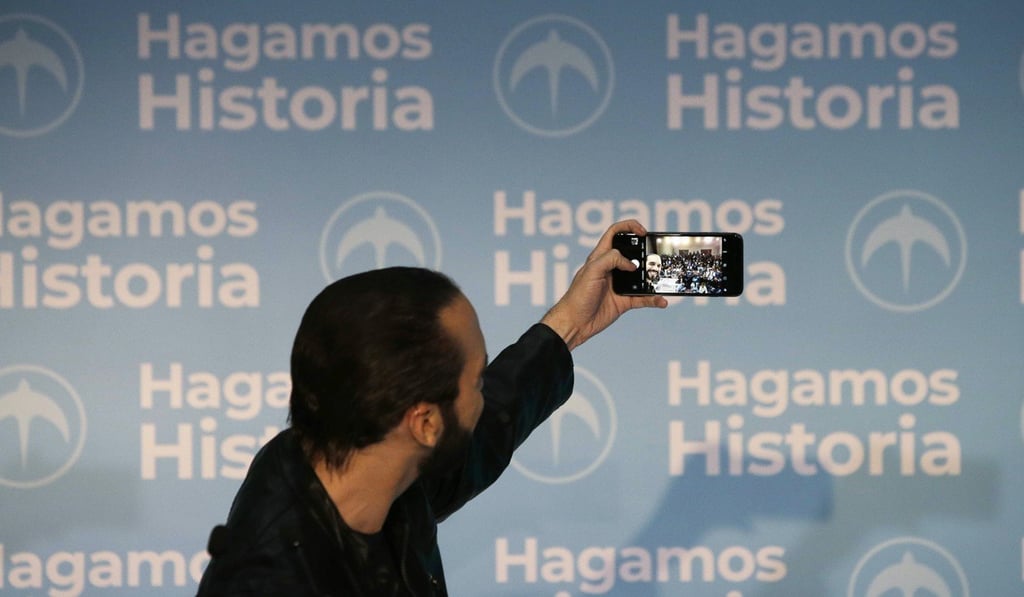Youthful, leather jacket-loving Nayib Bukele elected president of El Salvador, one the world’s most murderous countries
- Nayib Bukele, an avid social media user who often sports a black leather jacket, won more votes than his two closest rivals combined
- Gang violence has made tiny El Salvador one of the world’s most murderous countries, driving Salvadorans to flee to the north

Salvadorans have elected Nayib Bukele, the popular former mayor of San Salvador, as the Central American country’s new president - a result that ends the near 30-year grip on power of its two largest parties.
“At this moment we can announce with total certainty that we have won the presidency,” the 37-year-old Bukele, of the conservative Grand Alliance for National Unity (GANA) party, told supporters late Sunday.
A few minutes earlier, the country’s Supreme Electoral Tribunal (TSE) had awarded him 52.93 per cent of the vote with almost 70 per cent of ballots counted. It went on to announce preliminary results gave Bukele an “irreversible” lead of 53.78 per cent of votes with 87.67 per cent counted.
Bukele, an avid social media user who often sports a black leather jacket, has promised to increase investment in education and fight corruption - but his main task will be to implement new programmes to confront insecurity.
He will also have to form an alliance with the right, which dominates congress.
